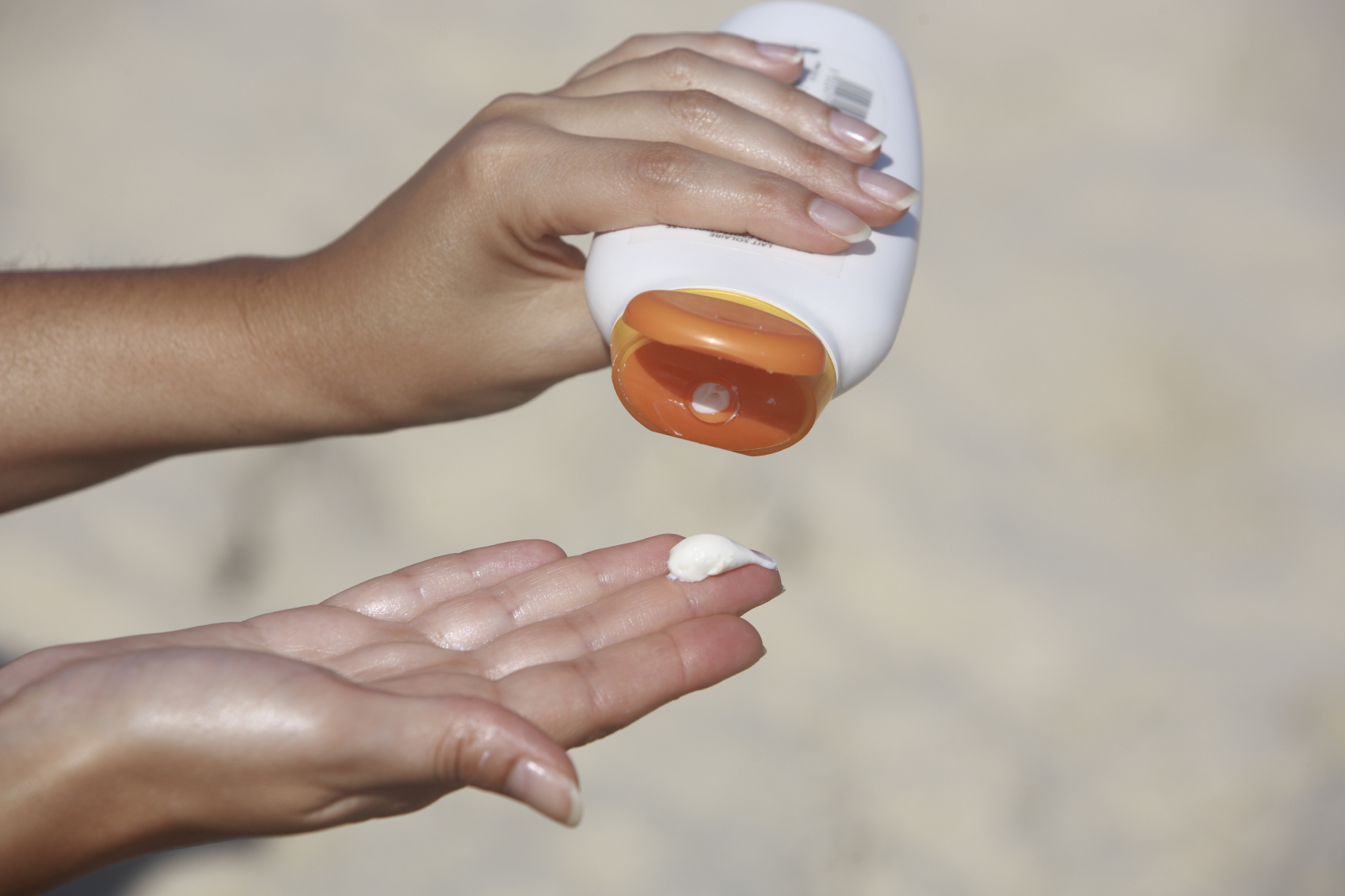Here's what you should know about picking a sunscreen

A free daily email with the biggest news stories of the day – and the best features from TheWeek.com
You are now subscribed
Your newsletter sign-up was successful
Don't let your lack of sunscreen smarts burn you this summer. A new survey in JAMA Dermatology shows that most people lack important sun protection knowledge, and don't understand much of what's written on lotion labels.
According to Dr. Roopal Kundu, one of the study's authors and a dermatologist at Northwestern University Feinberg School of Medicine, a crucial aspect of picking the right sunscreen lies in the difference in UVB versus UVA protection.
SPF (which stands for sun protection factor — something only 43 percent of people in the study knew) measures a sunscreen's ability to filter UVB rays, which are related to sunburn and skin cancer. However, SPF doesn't tell you anything about UVA ray coverage, Kundu says. UVA rays are also related to a increased risk of skin cancer, but are different from UVB rays because they are not filtered by the ozone at all.
The Week
Escape your echo chamber. Get the facts behind the news, plus analysis from multiple perspectives.

Sign up for The Week's Free Newsletters
From our morning news briefing to a weekly Good News Newsletter, get the best of The Week delivered directly to your inbox.
From our morning news briefing to a weekly Good News Newsletter, get the best of The Week delivered directly to your inbox.
While UVA doesn't cause sunburn, "it really leads to darkening and aging, because it penetrates deeper into the skin and has more influence in the collagen," Kundu said.
The only way to tell if your sunscreen will protect you from UVA rays are the words "broad spectrum." Kundu said she personally uses SPF 30 sunscreen with the active ingredient zinc oxide, a natural ingredient that physically — instead of chemically — blocks both UVA and UVB rays.
Most importantly, Kundu says typical adults should buy water-resistant, broad spectrum SPF 30 sunscreen, and reapply every two hours using the proper amount. "If we can help reduce or spot skin cancer sooner, or be more aware of it, these are the mechanisms by which we can do it," she told TIME.
A free daily email with the biggest news stories of the day – and the best features from TheWeek.com
-
 Local elections 2026: where are they and who is expected to win?
Local elections 2026: where are they and who is expected to win?The Explainer Labour is braced for heavy losses and U-turn on postponing some council elections hasn’t helped the party’s prospects
-
 6 of the world’s most accessible destinations
6 of the world’s most accessible destinationsThe Week Recommends Experience all of Berlin, Singapore and Sydney
-
 How the FCC’s ‘equal time’ rule works
How the FCC’s ‘equal time’ rule worksIn the Spotlight The law is at the heart of the Colbert-CBS conflict
-
 ‘One Battle After Another’ wins Critics Choice honors
‘One Battle After Another’ wins Critics Choice honorsSpeed Read Paul Thomas Anderson’s latest film, which stars Leonardo DiCaprio, won best picture at the 31st Critics Choice Awards
-
 Son arrested over killing of Rob and Michele Reiner
Son arrested over killing of Rob and Michele ReinerSpeed Read Nick, the 32-year-old son of Hollywood director Rob Reiner, has been booked for the murder of his parents
-
 Rob Reiner, wife dead in ‘apparent homicide’
Rob Reiner, wife dead in ‘apparent homicide’speed read The Reiners, found in their Los Angeles home, ‘had injuries consistent with being stabbed’
-
 Hungary’s Krasznahorkai wins Nobel for literature
Hungary’s Krasznahorkai wins Nobel for literatureSpeed Read László Krasznahorkai is the author of acclaimed novels like ‘The Melancholy of Resistance’ and ‘Satantango’
-
 Primatologist Jane Goodall dies at 91
Primatologist Jane Goodall dies at 91Speed Read She rose to fame following her groundbreaking field research with chimpanzees
-
 Florida erases rainbow crosswalk at Pulse nightclub
Florida erases rainbow crosswalk at Pulse nightclubSpeed Read The colorful crosswalk was outside the former LGBTQ nightclub where 49 people were killed in a 2016 shooting
-
 Trump says Smithsonian too focused on slavery's ills
Trump says Smithsonian too focused on slavery's illsSpeed Read The president would prefer the museum to highlight 'success,' 'brightness' and 'the future'
-
 Trump to host Kennedy Honors for Kiss, Stallone
Trump to host Kennedy Honors for Kiss, StalloneSpeed Read Actor Sylvester Stallone and the glam-rock band Kiss were among those named as this year's inductees